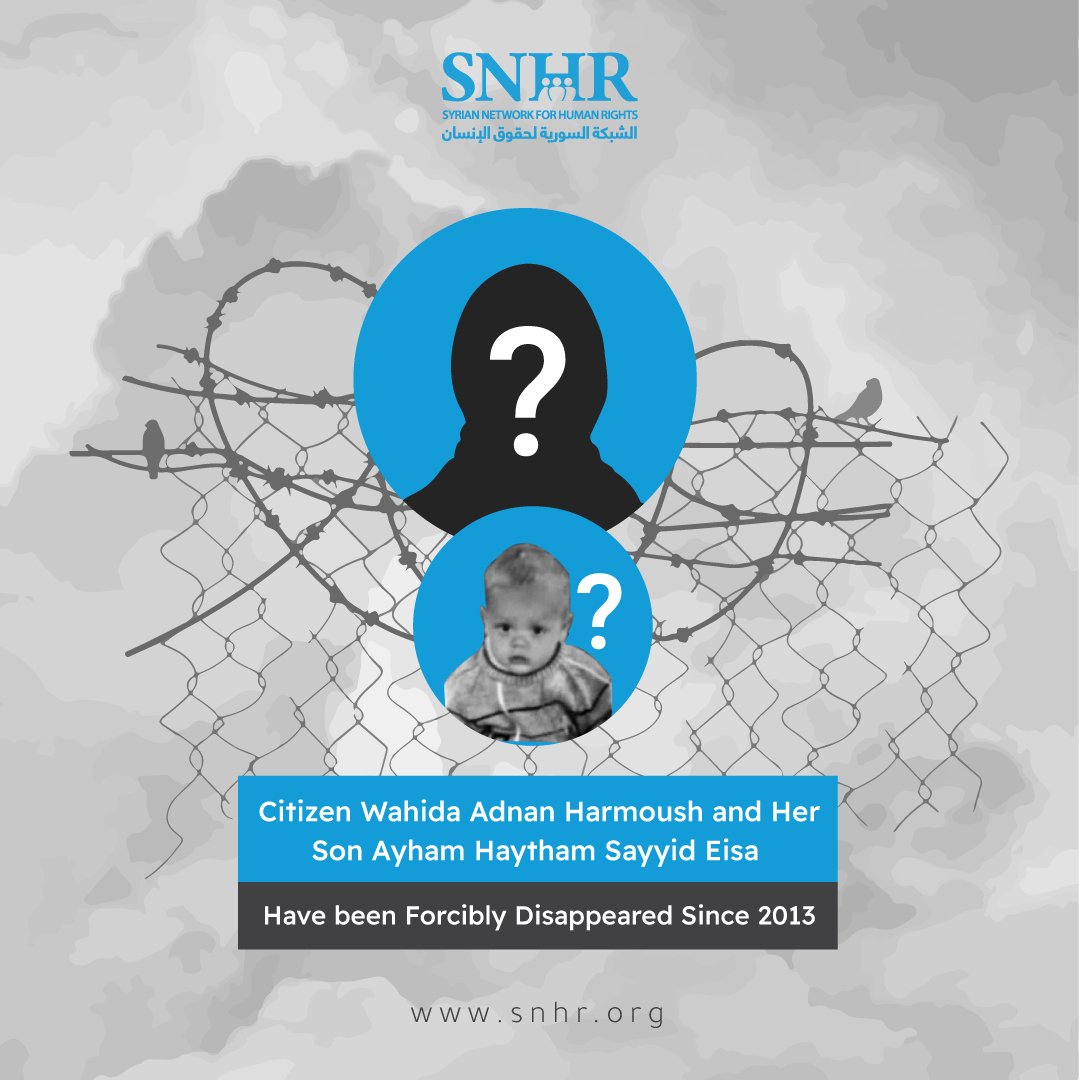
Languages
Available In
The Hague – The Syrian Network for Human Rights (SNHR) has briefed the UN Working Group on Enforced or Involuntary Disappearances on the case of Wahida Adnan Harmoush, born in 1971, and her son Ayham Haytham Sayyid Eisa, born in 2012, both from Idlib city, who were living in Shattoura area in Zahla subdistrict in Beqaa governorate in Lebanon at the time of their arrest. Wahida and her then-infant son were arrested on Sunday, April 7, 2013, at a Syrian regime forces’ checkpoint in Homs city on their way back from Lebanon. The mother and her infant son were then taken to an undisclosed location. They have been forcibly disappeared ever since, with their fate remaining unknown to SNHR as well as to their family.
SNHR has also briefed the UN Special Rapporteur on torture and other cruel, inhuman or degrading treatment or punishment, and the Special Rapporteur on the promotion and protection of human rights and fundamental freedoms while countering terrorism, as well as briefing the UN Special Rapporteur on the right of everyone to the enjoyment of the highest attainable standard of physical and mental health, specifically in regard to the case of Wahida Adnan Harmoush and her son Ayham Haytham Sayyid Eisa.
Syrian authorities have denied any connection with the enforced disappearance of Wahida Adnan Harmoush and her son Ayham Haytham Sayyid Eisa. SNHR has been unable to determine their fate, as have their family members, who fear that they may themselves be arrested and tortured by regime personnel if they continue to ask about their loved ones’ whereabouts and fate, as has happened in numerous previous cases.
SNHR has called on the UN Committee on Enforced Disappearance, the UN Special Rapporteur on torture and other cruel, inhuman or degrading treatment or punishment, and the Special Rapporteur on the promotion and protection of human rights and fundamental freedoms while countering terrorism, as well as the UN Special Rapporteur on the right of everyone to the enjoyment of the highest attainable standard of physical and mental health, to intervene and to demand that Syrian authorities release the mother and son immediately, as well as to secure the release of thousands of other forcibly disappeared citizens whose whereabouts and current conditions must also be revealed.
Although the Syrian government is not a party to the International Convention for the Protection of All Persons from Enforced Disappearances, it is indisputably a party to the International Covenant on Civil and Political Rights and the Arab Charter on Human Rights. Enforced disappearance constitutes a violation of both instruments.
SNHR also confirms that there are well-founded fears that many of those forcibly disappeared by the Syrian regime since 2011 may have been subjected to torture and possibly died due to torture, with the number of citizens forcibly disappeared by the regime continuing to grow.


